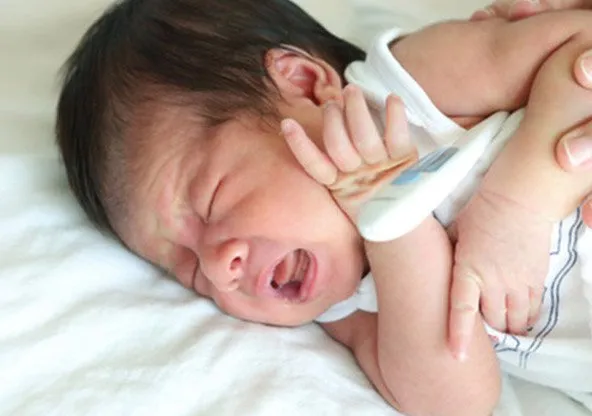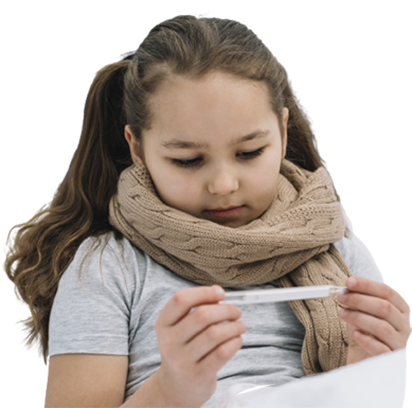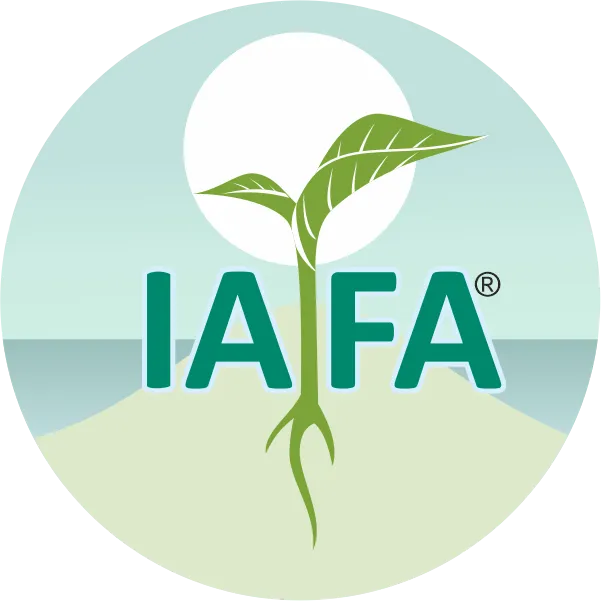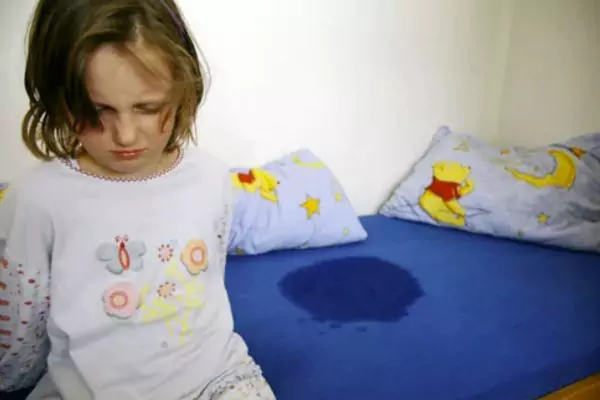On This Page
Febrile Seizures-Pittaja Apasmara
स्मृतेरपगमंप्राहुरपस्मारंभिषग्विदः|
तमःप्रवेशं बीभत्सचेष्टं धीसत्त्वसम्प्लवात्||
Febrile Seizures is clinical condition described as seizures in children triggered by fever present in children below 5 years of life. They are the commonest provoked seizures affecting 3-5% children. They occur during fever in between 6 months and 5 years age in absence of the central nervous system infection in neurologically normal child. In Ayurveda, seizures can be correlated to apasmara vyadhi. Balapsmara is Apasmara Vyadhi in pediatric age group patient; and it is observed that the symptoms mostly come under the group of pittaja apasmara since the most important one is jwara.
Febrile seizure
- Incidence – Commonest cause of convulsion in children affecting 3-5 % of Children.
- Predisposing factors – Genetic & Hereditary, Immature Brain, Predisposing Illness (Viral Infections, UTI)
- Clinical features – Febrile Convulsion occur in rising phase of temperature, but fever is the criteria for the convulsion and not the height or rise of fever, occurs within 24 hrs of onset of fever; maximum within 48 hrs.
Ayurvedic Reference of Pittaja Apasmara
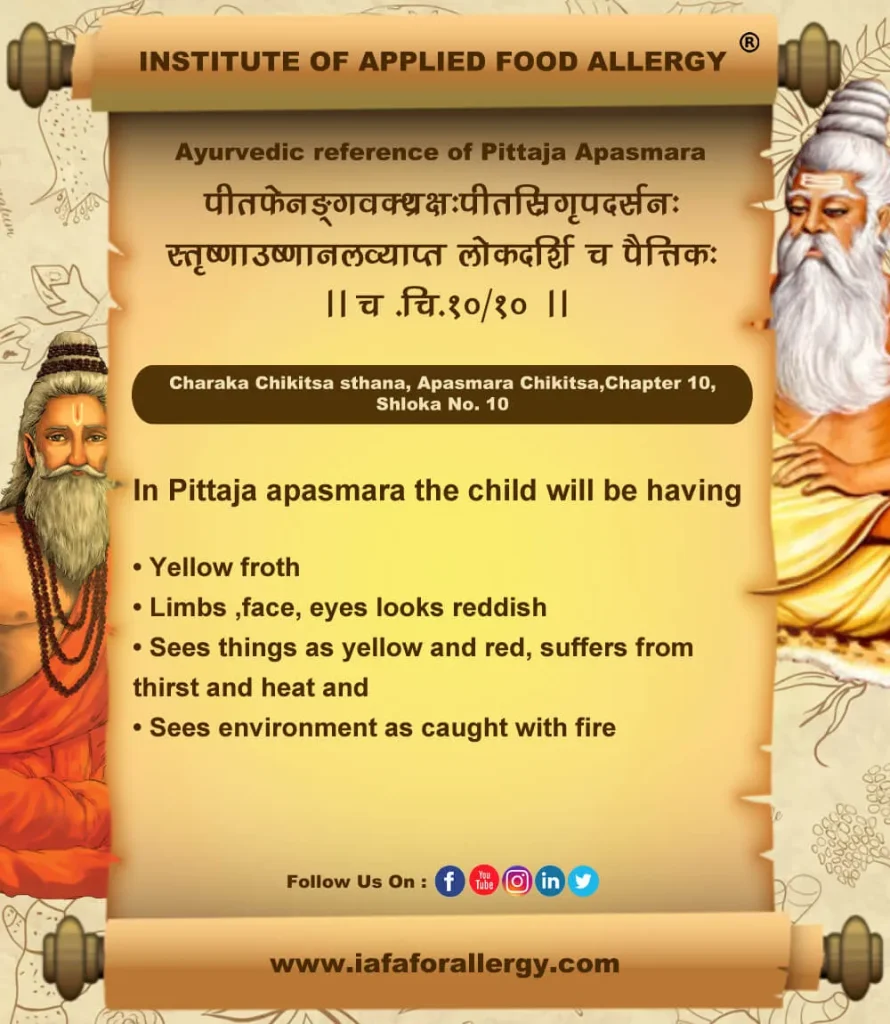
Ayurvedic Reference of Febrile Seizures
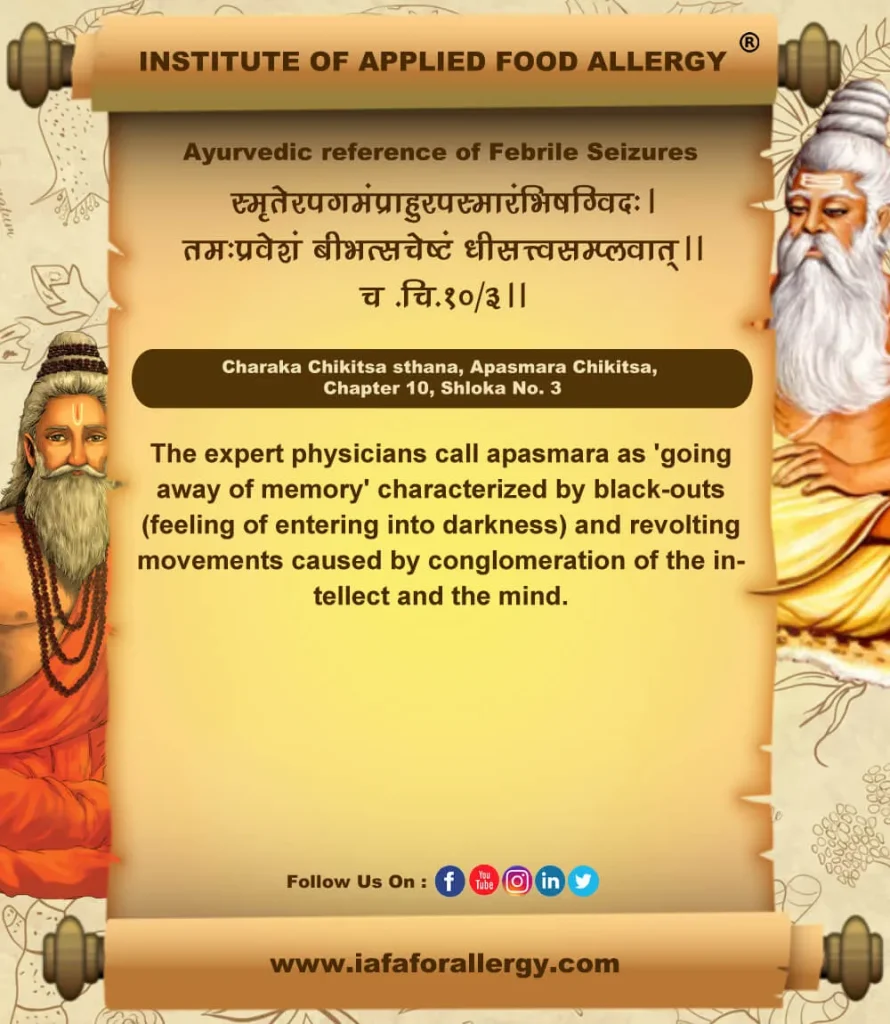
Pittaja Apasmara & Febrile Convulsion both are presented with
- Fever
- Face turns blue or red
- Loss of consciousness
- Tonic clonic convulsion may or may not be a/w with uprolling of eyeball
- Frothing

“ Dr. Gupta’s IAFA offers traditional and successful Ayurvedic management for febrile seizures in children. Institute of Applied Food Allergy® provides finest care for all health problems of your child through Ayurveda.
Worried about your child’s health?? Think about IAFA!!!
– Dr. Sahil Gupta (B.A.M.S., M.H.A.)
Ayurvedic Allergy Specialist
CEO & Founder of IAFA®
At last, Easier Febrile seizure Management

Trusted by
More than 90,000 Patients

Convenient
at-Home Treatments

9.2 / 10
Customer Satisfaction Score
Ayurvedic Treatment of Febrile seizures
Internal Medications
- Panchagavya Ghrita
- Mahat Panchagavya Ghrita
- Brahmi ghritha
- Panchagavya Ghrita
- Aswagandharishta
- Saraswatharishta
- Chandanasava
- Saraswatha churnam
- Kalyanaka churnam
- Mahayogaraja guggulu
- Manasamritha gutika
External Medications
- Bala thaila
- Chandanadi thaila
- Himasagara thaila
- Panchagandha churna
External Therapies
- Nasya (instillation of medicine through nose)
- Basthi(Enema therapy)
- Shirodhara (Pouring medicated liquids over forehead)
- Talam (Application of medicinal paste on bregma)
Single Herbs Used in Febrile seizures as per Ayurveda
- Shankhapushpi(Convolvulus pluricaulis)
- Aswagandha(Withania somnifera)
- Brahmi (Bacopa monnieri)
- Jyothishmathi (Celastrus paniculatus)
Diet in Febrile seizure
Pathya (Do’s)
- Gently place your child on the floor or the ground.
- Remove any nearby objects.
- Place your child on his or her side to prevent choking.
- Loosen any clothing around the head and neck.
- Watch for signs of breathing problems, including bluish color in the face.
- Try to keep track of how long the seizure lasts.
Apathya (Don’ts)
- Do not try to hold or restrain your child.
- Do not put anything in your child’s mouth.
- Do not try to give your child fever-reducing medicine.
- Do not try to put your child into cool or lukewarm water to cool off
Yogic therapy in Febrile seizures
Yoga is supposed to reduce the hyperactivity of the systems of the body including brain. The regular practice of Yoga may help to prevent on set of seizures and reduce the intensity in some cases. Yoga could be a best add-on treatment along with medication.
The practices which are helpful in the management includes
Kriyas(cleansing techniques): Jalneti, Sutra neti
Yogasanas: Uttanapadasana, Pawanamuktasana, Vajrasana,Vajrasana, Ardha Matsyendrasana, Gomukhasana, Bhujangasana, Tadasana, Katichakrasana, Shavasana.
Pranayama:Nadishuddi, Chandra Nadi Pranayama, Ujjayi, Sitali and Bharamari

Frequently Asked Questions
Question: What is Febrile seizure?
Answer: Febrile Convulsions are the commonest provoked seizures affecting 3-5 % children. They are defined as Seizures during fever occurring between 6 months and 5 years age in absence of the central nervous system infection in neurologically normal child
Question: What are the causes of febrile seizure in children?
Answer: The fevers that trigger febrile seizures are usually caused by a viral infection, and less commonly by a bacterial infection and the risk factors include young age and family history
Question: What is the Ayurvedic treatment for Febrile seizures ?
Answer: Ayurvedic treatments of Apasmara as described in Ayurvedic literatures may be divided as purificatory and palliative, depending on the severity of affection of the Doshas as well as the Bala (body strength) of the patient.
Dr. Gupta’s IAFA offers traditional and successful Ayurvedic management for febrile seizures in children. IAFA provides finest care for all health problems of your child through Ayurveda.
Worried about your child’s health?? Think about IAFA!!!
Was this Page Helpful?
So IAFA Ayurvedic Management for Febrile Seizures in Your Child is Just 3 Steps Away!

01. Connect With Us
Book an appointment to share queries of your child health.

02. Consult With Us
Consult with Ayurvedic Pediatrician of IAFA®.

03. Root Cause Treatment
Get an accurate diagnosis and treatment for your child.
Febrile Seizures – Case Studies
Real Case Studies of Successfully Treated Patients from All Around the World by IAFA Ayurveda®
-
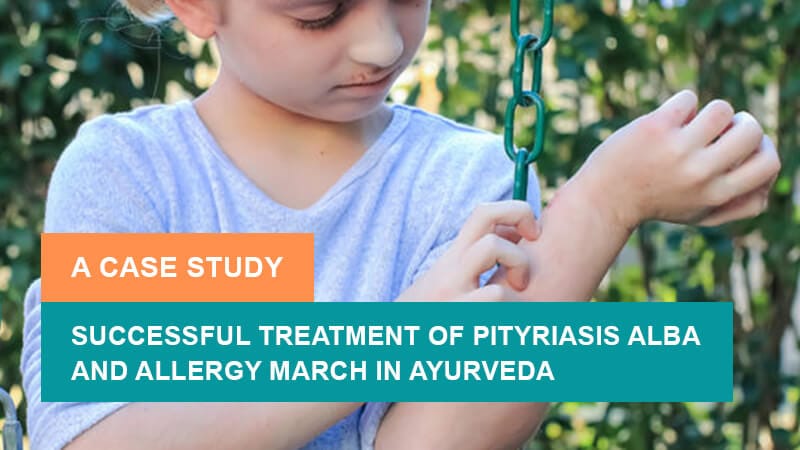
Successful Treatment of Pityriasis Alba and Allergy March in Ayurveda – A Case Study
It is a case study about successful treatment of Pityriasis Alba and…
-

Successful Treatment of Gallstones (Cholelithiasis) with Ayurvedic Medications – A Case Study
It is a case study about the successful treatment of Gallstones (Cholelithiasis)…
-
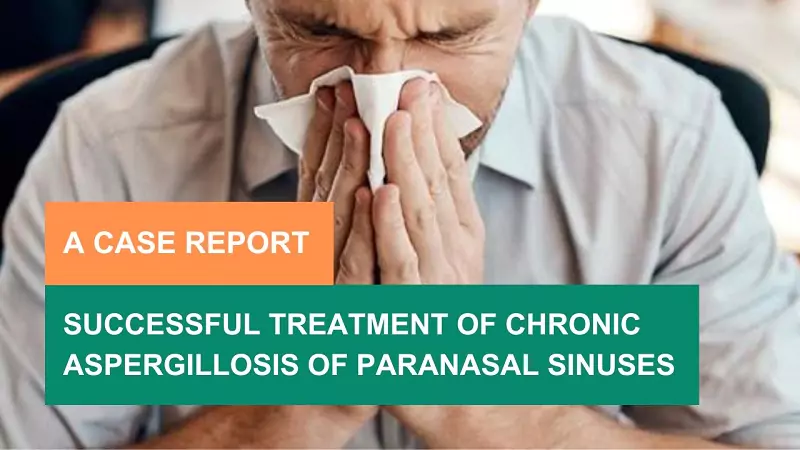
48-Year-Old Male Patient Got Relief from Chronic Aspergillosis of Paranasal Sinuses – A Case Study
Fungal infections can be treated with a high success rate by various…
-

6-Year-Old Child Patient Got Relief from Gluten Intolerance and Wheat Allergy – A Case Study
It is a case study of a 6-year-old Child Patient who got…
Read More Articles
-
-
-

Attention Deficit Hyperactivity Disorder – ADHD (Vatika Unmada)
So IAFA Root-Cause Treatment of Your Attention Deficit Hyperactivity Disorder is Just…

